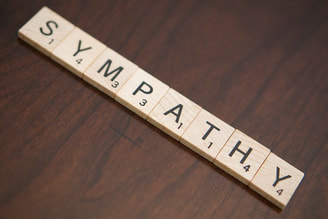
My perspective on belated condolences shifted when a bereaved spouse shared: “The bereaved never ‘get over’ missing their loved ones, and they appreciate knowing that you are remembering them, too.” She compared a note of sympathy to all conversations about the bereaved. She wanted to continue to hear stories about her beloved spouse, whether they came in a note or were shared via conversation.
A recently bereaved wife reached out to let me know she did not agree. She felt it was not appropriate to send belated condolences. As a mother and a breadwinner, she had no choice but to put one foot in front of the other every day to get to work, drive her children to school, and resume her life. She has rough days, but she also has days where she functions well. Sometimes she even feels a bit like her old self. And then she gets a belated sympathy note that tugs at her heart and sets her back for days. She wonders whether a belated sympathy note is more about making the sender feel better for making an effort than it is about comforting the bereaved.
I don’t just write about loss, I have conversations with the bereaved to understand loss from a range of perspectives. My advice is grounded in firsthand accounts, and I like to think that I am an advocate for extending levels of support that help the bereaved heal.
One thing I have learned is how personal loss is and how unique the experience for each of us. Everyone grieves based on his or her experience, relationships, and life history. There are guidelines for supporting the bereaved, but no hard-and-fast rules. Each mourner is different, and what comforts one person can hurt another. And mourning itself is fraught with intense pain, sadness, and isolation. Anger is part of the grief process, and it is easy to misplace that anger.
When it comes to belated condolences, I understand both points of view. Try to get your sympathy notes written within a reasonable period. If you are late, stick to the basics and avoid heart-wrenching memories. Just bear in mind the point of your note; you would like the bereaved to know that they and their loved ones are not forgotten.
Robbie Miller Kaplan is an author who writes from a unique perspective as a mother who has lost two children. She has written How to Say It When You Don't Know What to Say, a guide to help readers communicate effectively when those they care about experience loss, now available in three individual volumes: "Illness & Death," "Suicide" and "Miscarriage." Additional titles are available as e-books: "Death of a Child," "Death of a Stillborn or Newborn Baby," "Pet Loss," "Caregiver Responsibilities," "Divorce" and "Job Loss." All titles are in Amazon's Kindle Store. Click here to order.
Image by Diane Nassy Orange Flower - Gocco Screenprinted note card via photopin (license)
Copyright and Adapted from Legacy.com. Used with permission.



 RSS Feed
RSS Feed
